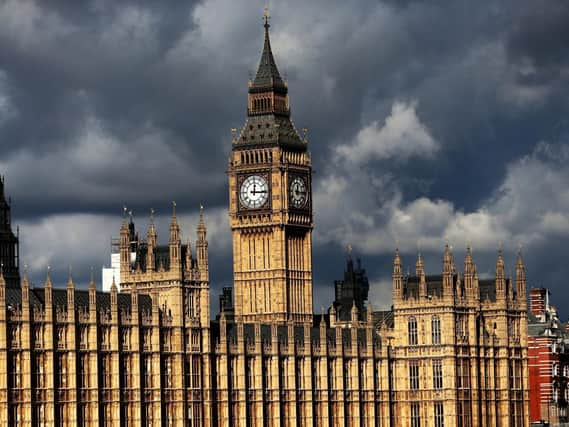‘Super deduction’ investment incentive may fail, Treasury minister tells MPs


The Chancellor, in a bid to offset tax rises and encourage spending, will allow companies to reduce tax bills by 130% of business investment in machinery and equipment.
Jesse Norman, Financial Secretary to the Treasury, told MPs it is “a very thoughtful policy”, but conceded it is not guaranteed to work.
Advertisement
Hide AdAdvertisement
Hide AdSpeaking during the second day of the Budget debate, Mr Norman told the Commons: “What that essentially says is that those businesses – and there is something like £100 billion held in corporate balance sheets at the moment in the UK – that those businesses, we need to get away from this pattern of under-investment from business.
“And this is a way of attempting to move corporate Britain in that direction.
“And it may succeed, it may fail, but it is a very worthwhile attempt to kickstart that business investment that is going to be foundational – not just to recovery from the pandemic, but to our long-term prosperity.”
The “super deduction” will cost the Treasury £29.8 billion over the course of the next five years.
Advertisement
Hide AdAdvertisement
Hide AdThe amount collected in corporation tax during the same period is expected to be £47.8 billion.
Earlier, Work and Pensions Secretary Therese Coffey said Britain is mobilising its “jobs army” to help people back into employment.
She noted the Kickstart Scheme, which aims to create work placements for 16 to 24-year-olds on Universal Credit, has helped 4,000 people start a job since September and there are “30,000 vacancies to be filled in the next month”.
Ms Coffey added that there are “more in the pipeline”, noting: “There are over 140,000 jobs already approved with agreed funding.”
Advertisement
Hide AdAdvertisement
Hide AdShe also said: “Our focus with the successful vaccine rollout should be giving hope and confidence to millions of families and businesses that there is genuinely light at the end of the tunnel.
“While the focus has been rightly on the jabs army, we are mobilising our jobs army to help people get back into work as we speed towards our recovery.”
Ms Coffey also failed to guarantee that the £20-a-week increase in Universal Credit payments will run beyond September if needed.
Mr Sunak extended the uplift until September but campaigners have warned it will push thousands of families into poverty when it ends.
Advertisement
Hide AdAdvertisement
Hide AdLabour’s Stephen Timms, chairman of the Work and Pensions Committee, asked: “She (Ms Coffey) said the Universal Credit uplift will be extended on a monthly basis.
“Does that mean, if circumstances warrant, the uplift will be continued beyond September of this year?”
Ms Coffey replied: “The clear intention is that this is an extension of six months because that’ll be well beyond the aspects of the national lockdown.
“I was particularly making the point about monthly payments as I’ve always been clear it’s about Universal Credit continuing on a monthly basis rather than a one-off basis would be the preferred approach, and I’m pleased the Chancellor has agreed with me on that and making sure we keep that regular payment uplift for the next six months.”
Advertisement
Hide AdAdvertisement
Hide AdOpening the debate, shadow chancellor Anneliese Dodds said: “The OBR (Office for Budget Responsibility) predicts we’re on course to see unemployment rise to 6.5% with more than two million people out of work.
“And what is (Ms Coffey) choosing to do just at the moment that the furlough scheme is set to end and joblessness peaks? She’s going to cut £20 a week from social security.
“Right when people need it most, she’s going to take our out-of-work support back to the lowest level since the 1990s, to cut the lifeline.”